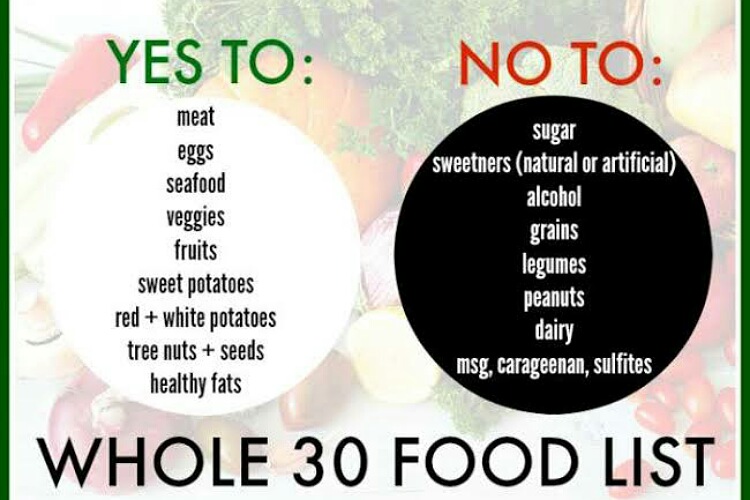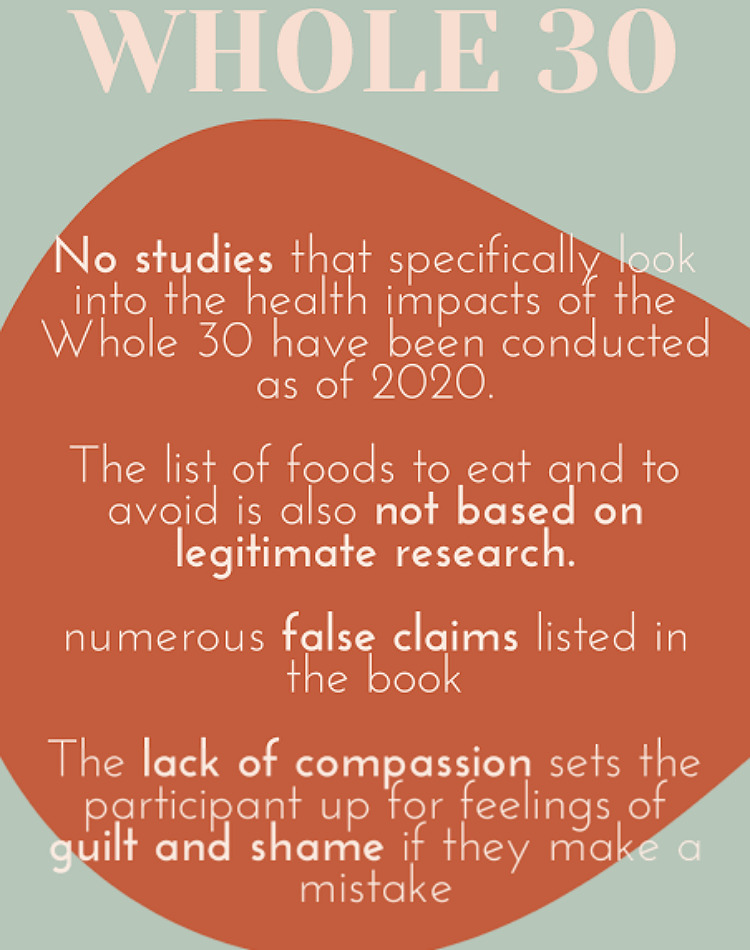Whole 30 diet is a fad diet for weight loss. It resets lifestyle after a period of unhealthy foods and hard drinking. What foods are allowed in this diet? And what are its pros and cons?
Whole 30 diet
Highly processed foods and hard drinking can cause an upward shift in the waistline. This has deleterious effects on the body. Chronic diseases, body inflammation, cancer and such risks rise and life span gets reduced.

Whole 30 diet promises to overcome these bad effects of excessive and unhealthy eating. Jennifer Oikarinen, dietitian working with Banner Estrella Medical Center in Phoenix says:
“The Whole30 isn’t a diet, per se, but a nutritional reset,”
“It involves cutting out foods that are super hard to give up and focusing on whole, unprocessed foods.”
Melissa Urban and Dallas Hartwig founded this diet. They state that it resets life. The 30 day diet is beneficial for both physical and mental health. It is similar to Paleo diet but with added restrictions. Jennifer explains:
“Whole30 focuses on eating foods that are not processed, such as fruits, vegetables, lean meats and eggs, and it prohibits sugar, dairy, grains, legumes and alcohol for 30 days,”
“As well, you’re not supposed to weigh yourself or take any measurements during the 30 days.”
She adds:
“After the 30 days, you slowly add back foods you eliminated over a 10-day period, one food group at a time, and monitor your body’s response, like does it make you feel tired or bloated,”
Health benefits
The diet is good for people with allergies, food intolerances and sensitivities. Jennifer elaborates:
“The plan cuts out foods that often trigger food allergies, intolerances and sensitivities,”
“Dairy and gluten, for example, are among the most commonly reported food intolerances.”
It resets metabolism and digestion and is good for those with gut issues. It controls blood sugars and provides energy with no crashes. There are claims of it boosting the immune system. Proponents of this diet claim that it resets taste buds and reduces sugar and salt cravings.

If improves alertness, heals the gastrointestinal tract and also increases sleep and its quality. The dieter tends to have increased focus.
Cons of the diet
It has drawn a lot of criticism due to its food restrictions. In this, there can be no intake of dairy and whole grains. But these are two vital food groups with a lot of nutrients in them for the body. Jennifer says:
“Whole grains have essential nutrients, vitamins and minerals, such as B vitamins, selenium, iron and magnesium, that assist with turning food into energy,”
“Dairy provides many nutrients including calcium, vitamin A, vitamin D and protein.”

Weight lost with the diet returns after 30 days are over. On it, Jennifer says:
“Most people have difficulty maintaining balance when they go off a restrictive diet,”
“This is when rebound overeating can occur.”
Also, read Tasty tips and foods to overcome the dreaded jet lag!
For short term reset, the diet might seem ok. But it is hard for some to follow.
